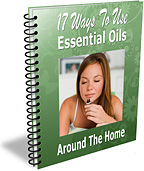
Organic Essential Oils
Organic essential oils are derived from plants that have been grown without the use of pesticides or herbicides on land that has been certified by an authorised regulatory agent such as ECOCERT, Nature et Progrès, or the UK’s Soil Association.
Many aromatherapists, nurses and other healthcare professionals prefer to use organic essential oils in their clinical treatments because they believe organic agriculture yields oils that are more therapeutically active than their non-organic counterparts. The lack of pesticide residues is also a major benefit when using organic essential oils since these unwanted toxic chemicals have far-reaching effects on our bodies, wildlife, and the environment.
To meet the high standards of quality at Quinessence, every one of our Organic Essential Oils has been analytically tested for purity and Certified Organic under one of the following official regulatory agencies:
- The Soil Association
- Qualite-France SA
- Nature et Progrès
- ECOCERT
- Agrobio
See the Quinessence range of Certified Organic and Coventional Essential Oils.
Quinessence organic essential oils bring you unrivalled value for money because in most instances they have been purchased directly from the farms and co-operatives where they are produced, thereby cutting out the costs of the middle-man. We then pass these savings along to you, so that you can enjoy the finest organic oils at an affordable price.
Are organic essential oils better?
This subject is complex and hotly debated, but our view is that essential oils produced organically are therapeutically superior to conventional (non-organic) essential oils providing they are derived from an identified botanical species, experienced good agricultural husbandry, were harvested at the optimum time, distilled with sufficient expertise, and stored correctly.
We have rejected a large number of poor quality organic essential oils over the years for a variety of reasons. Suffice to say that just because an essential oil is organic does not mean it is automatically 'better'. The term organic refers to a collection of agricultural principles and processes; - it does not automatically guarantee a better quality product. This is an important point to consider when deciding between conventional or organic essential oils.
In the same way that organic food usually tastes better than its non-organic equivalent, organic essential oils produced correctly often contain higher levels of the therapeutic constituents that are vital to the healing art of aromatherapy. Organic farms use natural fertilizers and rotate crops to replenish the nutrients in the soil using the philosophy ‘feed the soil to feed the plant’, and this could well be one of the contributing factors towards the increased vitality and bioactivity of organic essential oils.
Sustainable agriculture
Whilst our preference is for organically produced essential oils, we do accept that it has yet to be scientifically proven they are always more effective than their conventionally produced counterparts. We are simply stating our opinion based on many years of feedback from our customers, plus our collective experience both as a manufacturer and supplier. Quinessence were one of the very first companies in the United Kingdom to offer organic essential oils.
But even if it was determined that no therapeutic difference exists between conventional and organic essential oils, we would still not change our preference, since essential oils produced using organic agricultural methods are much kinder to the planet. There is much more to this debate than just the efficacy of the oils – the decision to go organic has wide reaching effects.
By purchasing organic essential oils from growers who use traditional farming practices we are all contributing towards a more sustainable ecological environment for the future. Surely this is a sensible and worthwhile investment for our forthcoming generations, and perhaps the most important reason to give when people ask, ‘if they’re not better, why buy organic essential oils?’
A large amount of agricultural land has already been lost due to soil erosion, and in many places the overuse of aggressive agrochemicals has destroyed the delicate balance between wildlife and its natural habitat. Organic farmers increase soil fertility through proper tillage and crop rotation, and nutritious soil produces plants that are better able to resist disease and insects, thereby reducing the need for pesticides.
British organic essential oils
An increasing number of Quinessence Certified Organic essential oils are now distilled on-site from medicinal herbs and plants grown on farms and co-operatives here in the United Kingdom. The steady but growing demand for organic essential oils here helps farmers diversify into long-term, sustainable and profitable crops at a time when UK agriculture is in decline due to unfair competition from cheap unregulated imported foods.
In the early 20th century the United Kingdom was a leading producer of essential oils, but the effects of two world wars led to essential oil crops being replaced with foods crops to feed the nation. By the 1950's, the number of essential oil crops had dramatically declined and other countries replaced the UK's output. Our hope is that the UK can once again become recognised as a leader in producing the finest organic essential oils. Due to the efforts of our hard-working, ingenious farmers, we believe the UK is well on the way to achieving this accolade.
Copyright © Quinessence Aromatherapy Ltd 2002 & 2012. Written by Geoff Lyth
If you enjoyed this article, please click the 'Like' button and help spread the word:
Next Organic Status
See also Essential Oil Origins


